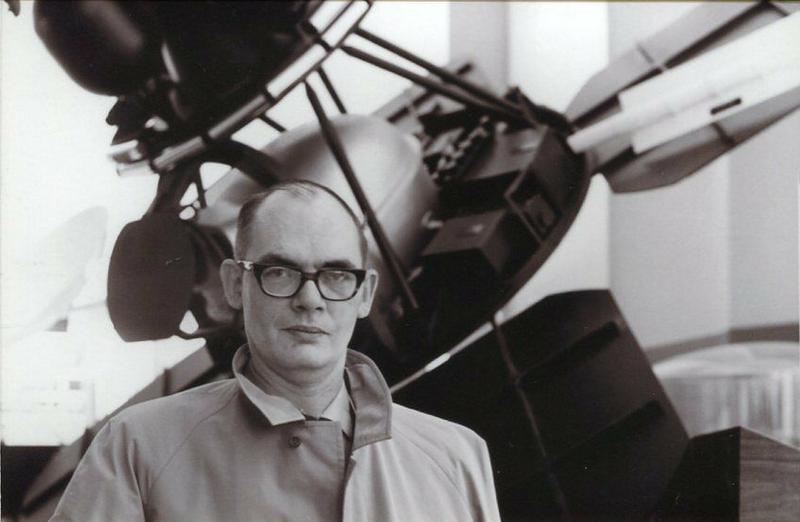
Matthew Paris writes:
Brooklyn born, raised a few blocks from my childhood digs in Crown Heights, Frederick Pohl co-wrote one of the best satires of American life in the 20th century, The Space Merchants with Cyril Kornbluth. He was also known for many other great science fiction novels. He was one of the founders of the moral implications what in the end was deemed scurvy and debased medium by Olympian critics but was the intellectual hub in the last century, exploring the intriguing and sometimes sinister social directions of our current technology.
Pohl was in the headily radical 1930s in Brooklyn both an engineer and a member of the Communist party. He gave both up soon enough, but what stuck was kind of precision and structural intelligence in his literary style. He wrote and talked with a great deal of clarity. He was a frequent guest at Long John Nevel's radio show. There was nothing that didn't interest him. He also could be very practical; when he discovered that writers were paid almost nothing, but agents made a living, he had a career as an agent. He lived into his mid-90s, stilling writing, at the home of his daughter residing in a suburb of Chicago.
When I knew him, Fred was living comfortably in Red Bank, New Jersey, an easy commute from New York. There was nothing eccentric or flamboyant about him. He was one of the most industrious writers one might come across though science fiction writers were known to be able to turn out oceans of prose.
As I think back on him, Fred was probably happiest writing because in a book with his clarion vigor he could describe a fantastical world with none of the florid and soft edges to it that he met in life. One should understand that science fiction writing didn't pay the bills very well, and even the editors didn't make much money. To be in this business, one had to be driven, a fanatic. One of his friends, Philip Jose Farmer, stopped writing science fiction for fifteen years to turn out technical manuals. He had gone broke writing science fiction. Then Farmer became famous and went back to producing works of innovative genius. Fred was frugal. One learned to be careful with money in the Great Depression. He also had an excellent head for the mechanism of a narrative. I guess that came from his engineering background.
I suspect that some fashions in the world alternate between enlightenment rationalism and murky explorations of the inner life of humanity. Both have their crashes and disappointments., Fred had both strains going for him. The premise of his novels is always terrifying and audacious. The execution of the book is done with a steely style that is at once propulsive and open to intricate detail.
Balzac says in Louis Lambert that geniuses tend to "turn their backs" on life and face a wall. Fred could do one and avoid the other writing science fiction about sensational subjects in a detached manner.
WNYC archives id: 85306
